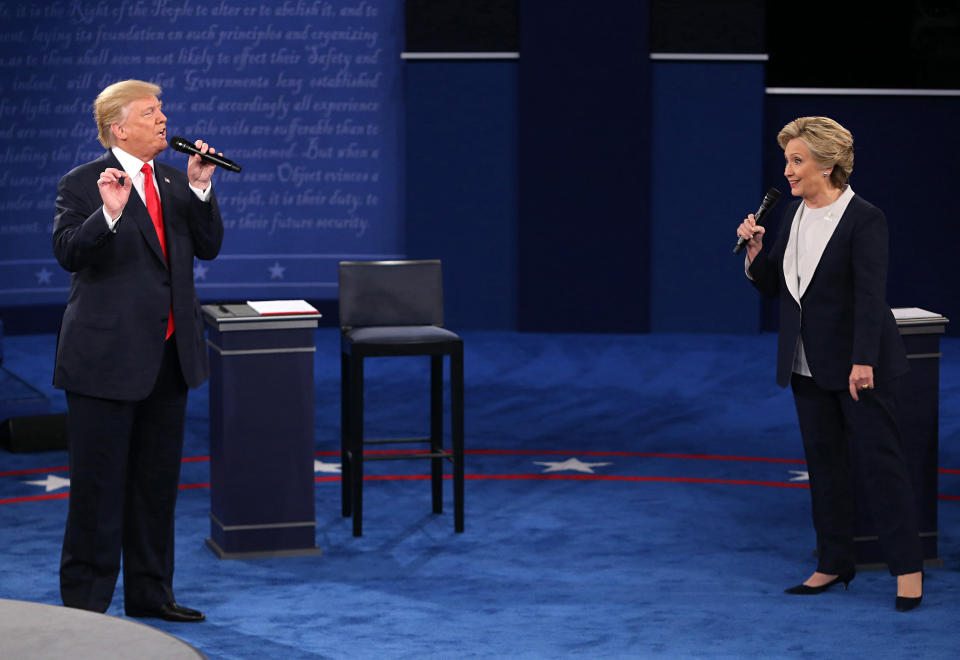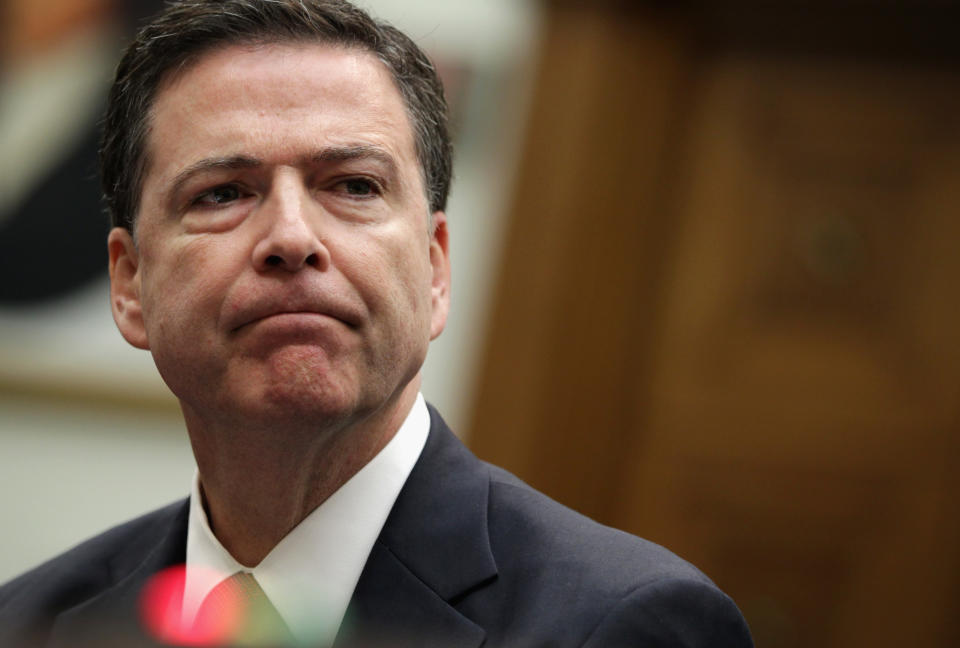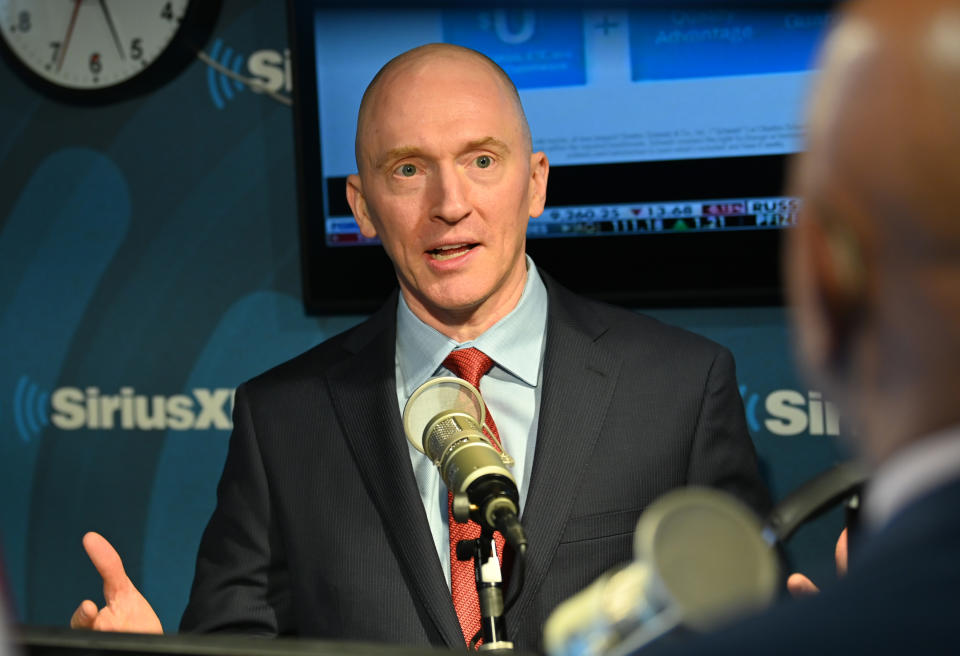Journalist who criticized FBI for handling of Russia probe says Trump's refusal to concede is 'dangerous BS'
A common defense of President Trump’s refusal to concede the 2020 election is that he’s simply taking revenge on his liberal opponents, in particular those who doubted the legitimacy of the 2016 election because of Russian interference.
“The media gave Russia Collusion 3.5 years. We can give Team Trump three and a half weeks,” tweeted Jenna Ellis, a member of the Trump campaign’s legal team that has failed to provide any evidence in court of cheating in the 2020 election. Ellis was quoting a Fox News host.
Some right-wing media outlets have suggested that the FBI’s failures and mistakes during its investigation into Russia’s interference in the 2016 election somehow make a rigged election more plausible, despite the absence of any evidence of such wrongdoing and assurances from top Republican election authorities that such a scheme is not even possible without detection.
But Eli Lake, a columnist for Bloomberg View who has been one the most aggressive critics of the government’s handling of the investigation into Trump and Russia, and has covered the matter as extensively as anyone, said that while there was a “scandal” in how the FBI conducted parts of its investigation, there was not a “deep state conspiracy.”
“The FBI is supposed to be the gatekeeper. We trust them to stay out of our politics and to be the Boy Scouts in all of this. And that’s where I think that there was a huge problem,” Lake said in an interview on “The Long Game,” a Yahoo News podcast. “Now, I’m open to the argument that they didn’t know what the hell was going on. And they’re looking at some of the things that Trump was saying, and they were freaked out, and they’re human beings just like the rest of us.”
But Lake said of those who think Trump is right not to concede, “Why would you then say, ‘Well, you guys did it and we thought it was bad. So now we’re doing the thing that we thought was bad’?”
And he dismissed the idea that the questioning by some prominent Democrats of Trump’s legitimacy after he was elected is in any way comparable to a sitting president refusing to concede after an election result in which he was clearly defeated.
“The president has used evidence-free assertions and extraordinary allegations about corruption and fraud as an excuse not to concede the election. No one has done that in American history. No president has done that in American history,” Lake said. “And the fact that he made these extreme charges, literally on election night, on the first night of it, in his 2 a.m. press conference, without having amassed that evidence, it’s despicable. And I just don’t understand how you can defend it.
“It’s just a bunch of BS, and it’s dangerous BS,” he said.
Democrat Hillary Clinton, who lost the 2016 election to Trump, has questioned Trump’s legitimacy as president. “He knows he’s an illegitimate president,” she said in 2019.
Former President Jimmy Carter said in 2019 as well that “Trump lost the election, and he was put into office because the Russians interfered on his behalf.”
“I have a lot of criticisms for Hillary Clinton’s and other Democrats’ approach in the Trump era, which I think they had said he wasn’t a legitimate president because of the Russia stuff. And that is bad because it undermines our confidence in our election systems,” Lake said.

But Clinton also conceded immediately after the race was called in 2016, even though Trump’s win over her was narrower than Biden’s win over Trump was. Both Clinton and Biden won the popular vote handily, although Biden’s margin of victory was over 6 million votes, compared with a little under 3 million for Clinton. Unlike Clinton, Biden also won more than 50 percent of the votes cast.
And in battleground states, Biden won the crucial states of Wisconsin, Michigan and Pennsylvania by a total of around 255,000 votes, compared with a margin of just 78,000 votes in those states for Trump in 2016.
Lake is a pugnacious and well-sourced reporter on the national security beat who stood out for his bracing critiques of the FBI and of the two top leaders at the agency during the start of the Russia probe: former Director James Comey and his deputy Andrew McCabe. He has engaged in robust debate with other experts on the subject; for example, on a Lawfare podcast he engaged with legal scholar Benjamin Wittes over the FBI’s handling of the investigation into Trump’s first national security adviser, Michael Flynn.
Lake has blasted top Democrats such as House Intelligence Committee Chairman Adam Schiff, D-Calif., who he said “spent two years claiming, because he was the chairman of the Intelligence Committee, that he had access to evidence that he couldn’t share that was more than circumstantial evidence of collusion,” which then didn’t pan out.
But again, Lake said, “it doesn’t excuse the sitting president from not conceding an election he lost, based on evidence-free nonsense.”
In January of this year, Lake published a nearly 8,000-word article summarizing the sprawling and complicated history of the Russia probe, which he characterized as “a cautionary tale about the fallibility of our lawmen and spies, the credulity of our press, and the hubris and hysteria of Trump’s resistance.”
He points to several clear mistakes that he believes add up to a failure of leadership by Comey and McCabe. Perhaps the biggest is the “abuse” of the process to obtain warrants for electronic spying on Carter Page, a low-level foreign policy adviser on the 2016 Trump campaign, from the secretive Foreign Intelligence Surveillance Act court.

A 2019 report from Justice Department Inspector General Michael Horowitz found that the FISA applications for the Page surveillance were “riddled with errors of fact and omitted exculpatory information.”
However, the Horowitz report “did not find documentary or testimonial evidence that political bias or improper motivation influenced” the Russia investigation.
Lake’s critique of the FISA process centers on Comey. “I understand why an aggressive case agent would want to get as much information and get a wire on a guy,” Lake said. “What we want from the leaders of these institutions is to hold them back and say, ‘Wait a second. You got to follow the procedure.’ And James Comey’s response to this has been a disgrace.
“He was the FBI director at the time, and it was his job to have a climate where these rules were followed. And clearly they were not.”
In particular, the FISA warrants relied on the infamous Steele dossier, a compilation of memos by former British spy Christopher Steele and paid for by Clinton’s campaign as a form of opposition research, to obtain the spying warrants.
The dossier went public only after Comey and McCabe pushed to have it included in an intelligence assessment they delivered to Trump before his inauguration, at which point BuzzFeed News decided to publish the information.
“The top analyst on Russia said, ‘This looks like a bunch of internet rumor,’ and it was McCabe and Comey that fought to include it,” Lake said.
“I don’t have a problem with a counterintelligence investigation so long as that counterintelligence investigation remains what it should be. We don’t know about most of these things, because if they go public it undermines the efficacy of the investigation. It alerts the targets. But it’s deeply unfair to people who didn’t do anything wrong, right?” he said.
“It’s never meant to go public,” he added.

An FBI attorney also pleaded guilty this past August to altering an email that was part of an application to renew the FISA warrant for Carter Page.
The Steele dossier, however, was not used as a justification for beginning the Russia investigation, as some top Trump allies have claimed.
“There were grounds in the summer of 2016 for American intelligence and law enforcement officials at the FBI to turn their attention to the peculiar behavior of some Trump campaign advisers. But as the bureau learned more about them, it should have reassessed its theory of the case,” Lake has argued.
_____
Read more from Yahoo News:



